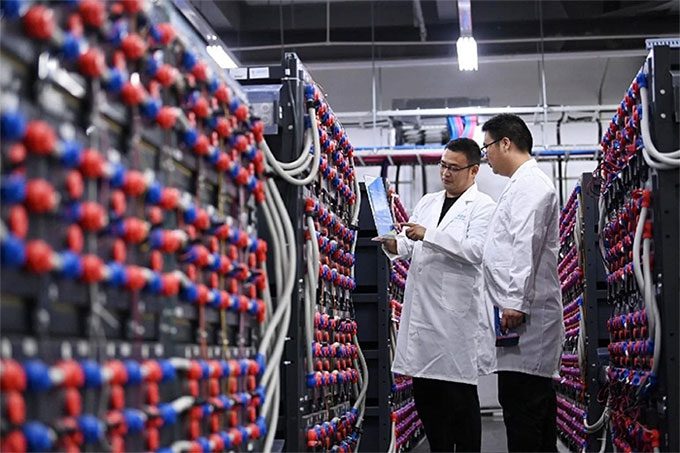This technology plays a crucial role in supporting AI operations, strengthening everything from ride-hailing services to daily business activities and chatbots like ChatGPT.
According to the recently released Global Computing Power Index report (2022-2023), China ranks second in the world in computing power (after the United States), generating 41% of its economic output from the digital economy.

Computing power is considered a new productive force in the digital economy era.
The rapid digital transformation in this country has created a strong demand for computing power. It plays an essential role in supporting artificial intelligence (AI), big data, and strengthens everything from ride-hailing services to daily business operations or chatbots like ChatGPT.
According to People’s Daily, computing power is viewed as a new productive force in the digital economy era, playing a critical role in driving technological advancement, the digital transformation of industries, and socio-economic development.
Another report indicates that the Internet industry in China has utilized up to 50% of computing resources, the highest among all sectors.
Thanks to computing power, in many warehouses (areas serving the needs of exporting domestic and international goods), goods are automatically loaded after the warehouse receives a command, then guided by vehicles onto automated trucks, all thanks to the application of signal coordination technology.

Goods are transported automatically in a warehouse in China. (Photo: People’s Daily).
“We monitor vehicles and routes using roadside sensor devices and edge computing platforms, while distributing vehicle Internet data to edge computing network nodes through 5G networks”, said Li Xiao, a director of 5G intelligent transport solutions.
Meanwhile, at a national nature reserve in Shandong Province (eastern China), dubbed the “international airport” for birds, the intelligent monitoring system has greatly aided engineer Shan Kai’s field survey work. After more than two decades of working here, he can finally stop manually recording data on survey sheets and manage everything thanks to technology.
Li Xiao further stated that a crucial part of the digitalization process in industries in China is that computing power will not only expand in scale but also become smarter. This is expected to become a “resource” as fundamental as electricity and water, helping China achieve greater success in the comprehensive development of various digital elements.
Recently, China announced that it would prioritize enhancing computing power as the nation shifts its focus to creating a solid foundation for its rapidly growing digital economy.
The head of China’s Ministry of Industry and Information Technology (MIIT) shared at a forum, “Computing power is now the foundation of digitization.” According to him, to move forward, China needs to accelerate the construction of national computing centers and data centers while speeding up technological breakthroughs.
As of the end of June, China achieved an average annual growth rate in computing power of nearly 30%, maintaining this rate for the past five years. They have also established the Central Science and Technology Commission this year to further enhance this sector.


















































